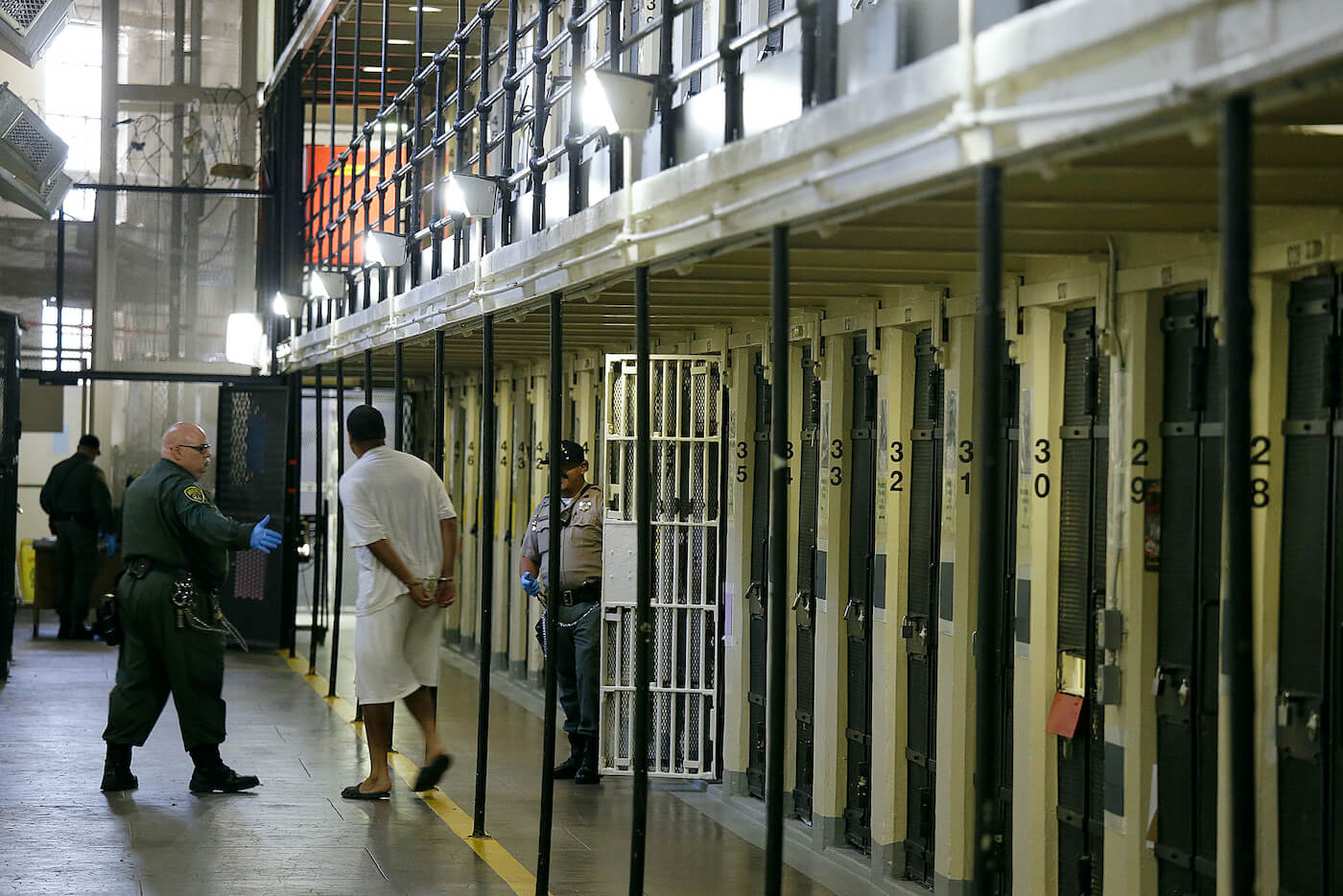(CN) — Families of Alabama inmates targeted the state’s practice of harvesting organs from the bodies of dead inmates, often in direct opposition to their wishes, in a trio of lawsuits filed Thursday.
The practice first came to light in December 2023, after the family of 43-year-old Brandon Dotson filed a federal lawsuit claiming his body was returned from a state autopsy in a decomposed condition with his scalp peeled back and his heart missing. The lawsuits in Montgomery County Circuit Court are the first state actions to follow up follow up Dotson's case.
The first of Thursday’s lawsuits was filed on behalf of the survivors of 66-year old Jim William Kennedy, who died at Limestone Correctional Facility on April 13, 2023.
According to an agreement between the Department of Corrections and the University of Alabama at Birmingham, he was transported to the school’s Department of Pathology for an autopsy the same day. But the Kennedy family claims they were not notified of his death until four days later.
They filed a claim for his body April 17, with a request it be sent to a funeral home of their choosing. Upon receipt, the funeral home notified the family Kennedy’s body was in “a severely damaged state … missing all of his organs and that some of his bones, including his ribs, were broken.”
Kennedy’s daughter emailed Limestone’s warden the following day requesting the return of her father’s “internals” but never received a reply. Another family member spoke with a university representative April 20, but was told as a teaching institution, it was their policy to harvest organs during autopsy and they were no longer in possession of Kennedy’s organs.
Similarly, Arthur Olen Stapler was an 85-year-old inmate who died on Sept 23, 2023, while incarcerated at a facility for the aged and infirmed.
When his body was transported to the school two days later, the Department of Pathology removed his organs during an autopsy. When the family hired a private physician to conduct a second autopsy, they learned his body was received without organs. According to the complaint, most of the organs were later recovered, but several had been damaged.
A third family claims the state unlawfully retained the organs of 36-year-old Anthony Perez Brackins who died on June 28, 2023 at Limestone Correctional Facility. Brackins’ family was notified of his death by other inmates the same day, and his mother immediately began communicating with the warden and filled out the paperwork to claim his body.
But Brackins was transported to the university for an autopsy and then to a funeral home in Decatur on June 30. When Brackins’ family requested a second autopsy, they learned all his organs had been removed and Brackins was already embalmed.
Stonewalled for more information by the Department of Corrections, a representative of the school then told the Brackins family it was their policy to retain organs, and it was “too late” to retrieve them.
Reportedly, a January hearing in the Dotson case was not revealing, with witnesses from both the Alabama Department of Corrections and the University of Alabama at Birmingham testifying they didn’t know where Dotson’s heart was. But Dotson’s family wasn’t the only one asking questions.
In the past three months, the state’s practice has also generated complaints from the family of a 74-year-old former inmate whose body was returned to the family without a brain or other internal organs, while the same happened upon the death of 43-year-old Kelvin Moore, whose family reported in January they were considering a lawsuit.
According to the families, the agreement between the University of Alabama at Birmingham and the Department of Corrections for autopsy services has been in place since 2005, and the school is paid $2,200 for each one performed.
Citing a 2018 study, the families note in their complaints that nearly 50% of the department’s revenue was generated from autopsies for the Department of Corrections or the Department of Forensic Sciences.
The agreement further gives the Department of Corrections commissioner the authority to grant permission for the autopsy “and the removal of organs or tissues for further study on said inmate.”
Thursday’s lawsuits claim the agreement is unlawful and “permitted the conversion of property (namely, the remains of their loved ones).”
The plaintiffs are represented by Michael G. Strickland at Strickland & Kendall in Montgomery.
Naming Alabama Department of Corrections Commissioner John Q. Hamm, a handful of physicians and the university as defendants, the families bring charges of unlawful conversion of anatomical parts, conspiracy, fraud, negligence, unjust enrichments and intentional infliction of emotional distress.
In February, Alabama State Representative Chris England, a Democrat, proposed a bill seeking to make it a felony for a medical examiner to “retain a deceased person's organ or organs without the notification and consent of the next of kin in certain circumstances.” The bill is pending introduction in the House Judiciary Committee.
Subscribe to Closing Arguments
Sign up for new weekly newsletter Closing Arguments to get the latest about ongoing trials, major litigation and hot cases and rulings in courthouses around the U.S. and the world.









